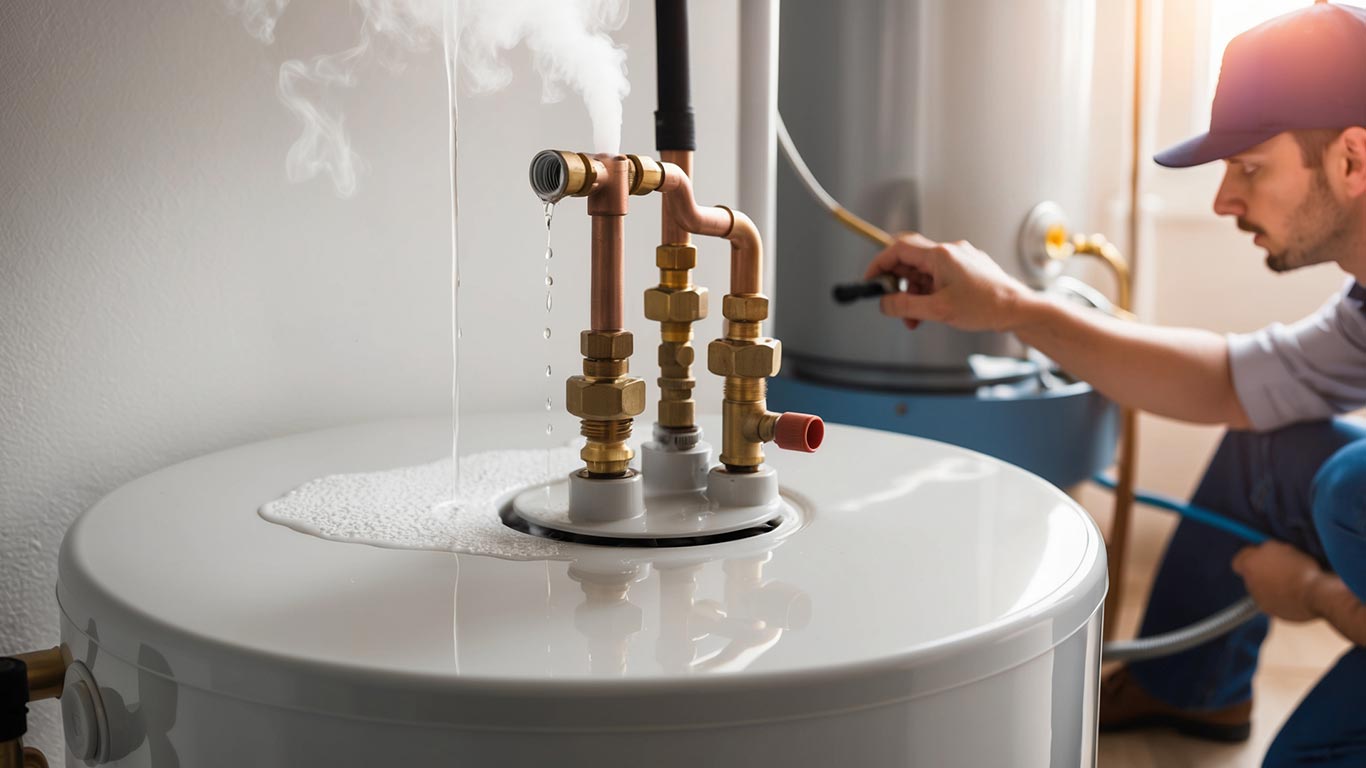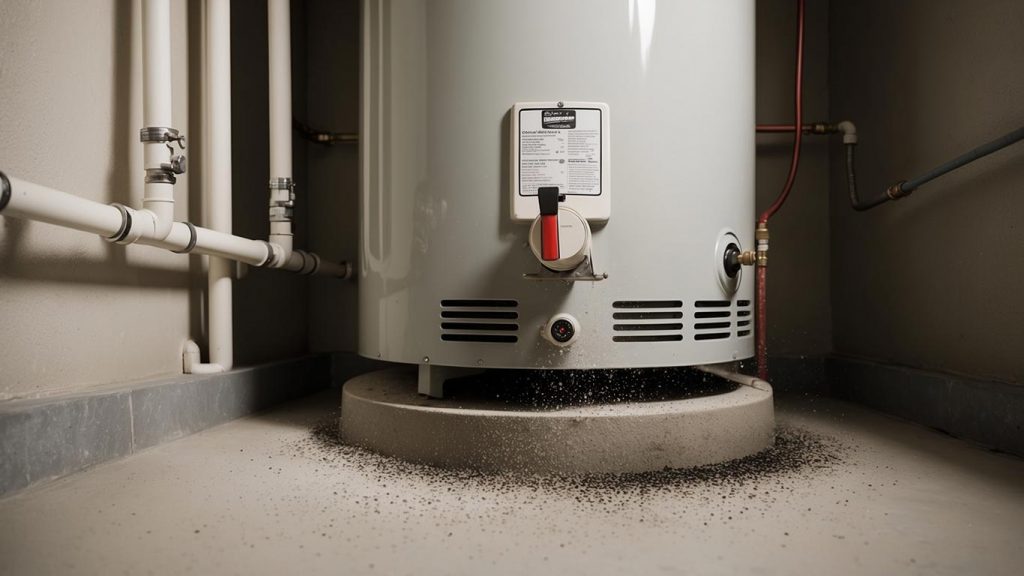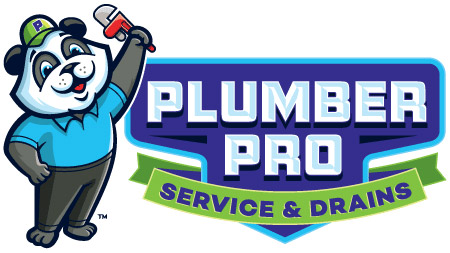7 Common Water Heater Noises and What They Mean

Water heaters operate quietly in the background, but when they start making unusual noises, it’s a sign that something could be wrong. These sounds may seem like minor annoyances, but they often point to underlying issues that, if left unchecked, can impact your system’s efficiency or even lead to damage.
Whether it’s a banging, sizzling, or screeching noise, understanding what these sounds mean can help you catch problems early and keep your water heater running smoothly and safely.
Read on to discover what these common water heater noises mean and how to fix them before they become a bigger issue.
Water Heater Making Banging Sound
A banging sound from your water heater is often a result of sediment buildup at the bottom of the tank. Over time, minerals and debris in your water settle and form a thick layer of sediment. Steam bubbles can get trapped beneath this sediment layer when the water heats up. As the bubbles rise and burst, they create a loud banging or popping noise. This buildup can also cause a rumbling sound as overheated water bubbles through the debris, leading to continuous low-pitched noises.
Due to the sediment buildup, the heating element has to work harder to heat the water, resulting in higher energy bills and potential damage to the unit over time.
The Fix: To resolve this issue, flush the tank to remove the sediment. Turn off the heater, drain the water, and flush it with fresh water until the sediment is cleared. If the buildup is severe, consider calling a professional for a thorough cleaning or an inspection to check for potential damage.
Need more help? Our water heater repair services can resolve any banging and popping sounds caused by sediment buildup.
Crackling Sound from Water Heater
A crackling sound from your water heater is often due to moisture trapped in the heating element, especially in electric water heaters. As the heating element warms up, any water that has accumulated around it can cause a crackling or sizzling noise as it evaporates. This is generally more common when mineral buildup around the element traps water and creates these sounds during heating.
While the noise itself may not indicate a serious issue, it can be a sign that sediment or mineral buildup is affecting the efficiency of your water heater. Over time, this buildup can cause the heating element to work harder, reducing efficiency and possibly even damage.
The Fix: You can fix this by turning off the water heater, draining the tank, and cleaning or replacing the heating element. Regular maintenance can help prevent this issue by reducing sediment buildup around the heating element.
Sizzling Sound Coming from Water Heater
A sizzling sound from your water heater indicates water leaks onto the hot burner or heating element. This occurs when there’s a small leak in the tank or from a valve, allowing water to drip onto hot components and produce a sizzling noise as it evaporates. Another possible cause is excess condensation, particularly in gas water heaters, which can produce the same sound.
Ignoring this issue can lead to water damage or a malfunctioning heater. It’s important to address the source of the leak or condensation as soon as possible.
The Fix: Inspect the water heater for visible leaks or excess moisture around the valves and connections. Tighten any loose fittings and replace a valve if it leaks. If the sizzling persists, call a plumber to inspect the tank and address any potential damage or malfunction.
Water Heater Making a Rattling Noise
A rattling noise from your water heater is typically caused by loose components or sediment moving around inside the tank. As water flows through the system, debris or loose parts can shift, creating a rattling sound. This can also happen if the pipes connected to the water heater are not properly secured, causing them to vibrate and rattle.
While the noise may seem minor, ignoring it can cause damage to internal components or the tank itself. If the issue is with loose pipes, it can also create unnecessary wear on the system.
The Fix: First, check the water heater and surrounding pipes for any loose connections or fittings, and tighten them if needed. If sediment buildup is causing the rattling, draining and flushing the tank should help.
Squealing Water Heater
A squealing sound from your water heater is typically caused by high water pressure or a malfunctioning valve. When water flows too quickly through the system due to elevated pressure or when a valve is partially closed or damaged, it creates a high-pitched squeal. This noise often occurs when the water heater is filling or when water is being used in your home.
While the sound itself isn’t immediately harmful, it could signal an underlying issue that, if left unaddressed, could damage your water heater or plumbing system.
The Fix: Start by checking and adjusting the water pressure in your home. If the pressure is too high, lowering it should reduce the squealing. Inspect any valves on or near the water heater to ensure they are fully open and functioning correctly. If you’re unsure about the cause or need further assistance, a plumber near you can help diagnose and resolve the issue.
Screeching Sound from Water Heater
A screeching sound from your water heater is often caused by a restriction in the water flow, usually in a valve or pipe. When the water flow is partially blocked, it forces water through a smaller opening at high pressure, which results in a loud, high-pitched screeching noise. This is common when a valve isn’t fully open or debris obstructs the water flow.
The Fix: To fix this issue, check all the water heater valves to ensure they are fully open. If the screeching persists, inspect the valves and pipes for blockages or buildup that may restrict water flow. In some cases, the valve may need to be cleaned or replaced.
Popping Sound from Water Heater
A popping sound from your water heater is one of the tank’s most common indicators of sediment buildup. As the water heats up, steam bubbles form beneath the sediment layer. When these bubbles burst through the debris, they create a sharp popping or snapping noise. This is particularly common in hard water areas where mineral deposits accumulate more quickly.
In addition to popping, you may occasionally hear gurgling caused by water moving through the sediment, but popping is the more prominent sound in this situation. Both noises indicate that the sediment is forcing the heating element to work harder, reducing the efficiency of your water heater and potentially leading to higher energy bills.
The Fix: To resolve this issue, flush the tank to remove the sediment buildup. Turn off the water heater, drain it, and rinse the tank with fresh water to clear the debris. Regular flushing can prevent this problem and keep your water heater running efficiently.

When to Call a Professional for Water Heater Noises
You should call a professional for water heater noises if:
- Persistent or Loud Noises: If banging, screeching, or sizzling noises persist after basic maintenance, like flushing the tank, it’s time to call a professional. These sounds may indicate more serious issues like pressure problems or internal damage.
- Water Leaks: If you notice a sizzling sound accompanied by visible water leaks, it could be a sign of a faulty valve or a compromised tank. Leaks can lead to water damage and require immediate professional attention.
- High-Pitched Screeching or Squealing: These noises often indicate water pressure issues or blocked valves, which may require adjustments or replacement by a licensed plumber.
- Unexplained Noises or Gas Smells: If the water heater makes noises you can’t identify or you smell gas, it’s crucial to call a professional right away. This could indicate a dangerous gas leak or other safety hazard.
Take Action Before Water Heater Noises Become a Bigger Problem
A noisy water heater can be dangerous if it signals issues like pressure buildup, leaks, or internal damage. Ignoring these noises may lead to costly repairs, system failure, or even safety risks such as gas leaks or overheating.
If you’ve noticed any banging, sizzling, or popping sounds, don’t wait for the problem to worsen.
Call Gwinnett Plumber Pro at (706) 224-1385 today for a professional inspection and water heater repair service.

